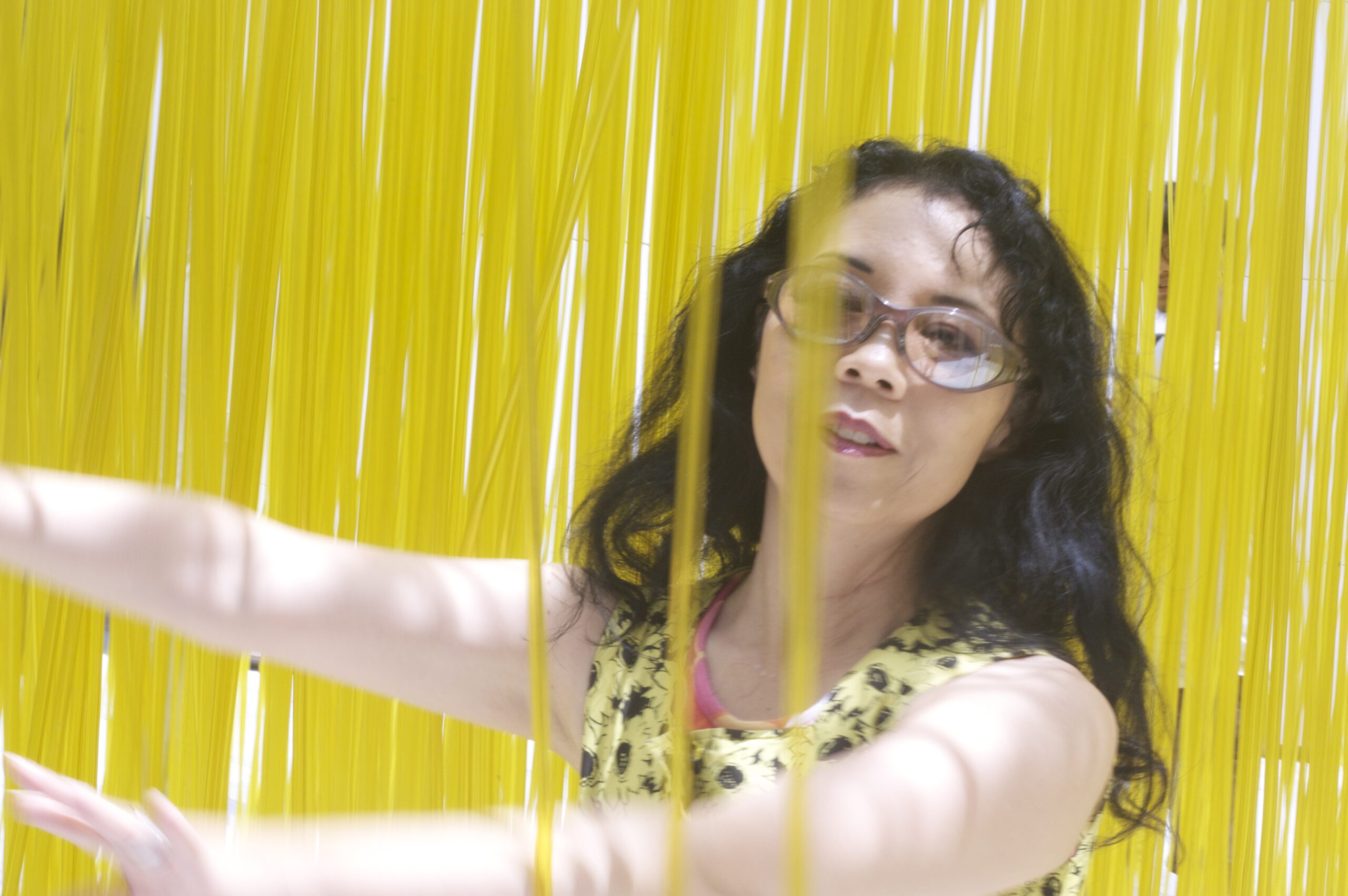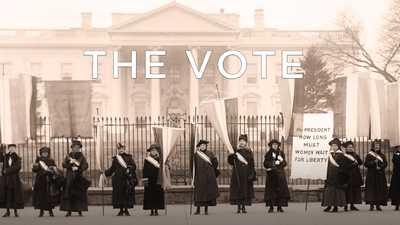For Women’s History Month, PBS is taking us on a march toward the centennial anniversary of the 19th Amendment with programming like “Rise Up: Songs of the Women’s Movement” and its Unladylike2020 shorts. The two programs are part of the PBS Trailblazers Initiative which will culminate with the broadcast of “American Experience: The Vote.”
PBS Programming Executive Zara Frankel explained that Trailblazers is one of the quarterly programming initiatives of “cinematically-related content that airs over a matter of weeks and months.” This one is “rooted in our two-part film, ‘The Vote,'” which is “a true historic look at what was happening at the turn of the century in the decade leading up to women being granted their right to vote.” The initiative not only will “celebrate and commemorate who fought in the suffrage movement,” but also the women who shattered that glass ceiling.
“Rise Up” notes that the women’s suffrage movement used songs to get out its message, sometimes putting speeches to music. “The March of the Women” (1911) by Ethel Smyth and its four verses open this documentary, but the songs are predominately from the 1970s and 1980s. “Rise Up,” has a lot of ground to cover and relies heavily on archival footage between its interviews with people like the current president of the National Organization of Women Toni Van Pelt, Jane Fonda, Gloria Steinem, Joan Jett, Cyndi Lauper, Melissa Etheridge and Gloria Gaynor.
Less familiar are people like guitarist June Millington and her long-time partner Ann Hackler who founded The Institute for the Musical Arts (originally in Bodega, CA and, since 2011, in Massachusetts). Also prominently featured are the Lompoc, California-born Margie Adam, who was one of the singer/songwriters of the Women’s Music Movement, and Ginny Berson who was a co-founder of the first women’s recording company in the US, Olivia Records and authored the book Making a Show of It: A Guide to Concert Production.
As you might expect, the documentary includes songs like Aretha Franklin‘s “Respect,” Helen Reddy’s “I Am Woman” and Dolly Parton’s “9 to 5.” Two of the producers for “Rise Up,” Heather Smith and Donna Korones, said they found the songs by doing researching various lists and wanted to be sure that a variety of music genres were represented.
Korones said she related to every single song. For Smith, while she always loved Gloria Gaynor’s “I Will Survive,” she found new favorites. Smith didn’t know much country music well so Loretta Lynn’s “The Pill” was a surprise. The song was banned on some stations, but Cyndi Lauper gives it a shout out.
Korones was surprised at “how deeply felt and how deeply attached” the women were to the songs. “Women really took these songs to heart” because “people needed them to give them fuel” for the fight.
Smith said, “The biggest surprise was Leslie Gore’s ‘You Don’t Own Me.’ When we did the interviews, I didn’t believe how many people knew that song” and “the stories and emotion that they had to share.”
Not all of the songs were initially embraced by the women’s movement and feminists such as Cyndi Lauper’s “Girls Just Want to Have Fun.” Some criticized it as “frivolous” and just “about sex.” In the documentary, Lauper comments that her version of the song was always about feminism and she made sure that the music video showed “multiracial, multi-generational women and men” having fun together. The song came out in 1983, but Lauper later felt vindicated when in 2015 women were out marching with signs that said: “girls just want to have fundamental rights.” She said, “It just made me cry.”
“Rise Up” ends in the mid-‘80s. Smith explained, “We decided to end it before we really got in the third wave of feminism,” particularly since it made cinematic sense to end with the powerful Aretha Franklin and Annie Lennox 1985 hit, “Sisters Are Doin’ It for Themselves.” A second part is in the works to take us from the 1980s to the present, covering third and fourth wave feminism.

Besides women singing protest songs, there were also unsung heroines who walked the talk. From March 4 to August 26, Unladylike2020 will release one short film a week, 26 in all. The short documentaries look at little-known American women from the turn of the 20th Century and the contemporary women who followed in their footsteps.
Director/writer and series creator Charlotte Mangin said she was originally inspired to begin her series after visiting the sea, air and space museum, Intrepid, in New York, with her two boys. That day, the museum was hosting a book launch for, Soar, Elinor, a book about Elinor Smith, the youngest licensed pilot in the world at the time. She was dared to fly under a bridge and successfully flew under all four bridges of New York City’s East River. Smith went on to become a test pilot and even worked with NASA. Mangin remembers, that she was “just in awe of this story” but also frustrated: “Why have I never heard about Elinor Smith?”
Learning more about Smith became an obsession that led her to other female aviators, far beyond just Amelia Earhart. Eventually, her research spread out to other fields and “grew and grew and grew into this treasure trove of stories.” When she realized that the anniversary of women’s suffrage was coming up she thought it was perfect timing for a series because it expanded the history of “women who were active at the turn of the 20th century against the backdrop of the suffrage movement.” The suffragettes that most people know about “tend to be white, wealthier East Coast activists.”
The title of the project came out from something said about political activist and journalist, Louise Bryant. According to Mangin, when Bryant was brought before Congress for questioning, one of the congressmen said he wanted to treat her as a lady, but she told him she didn’t want to be treated as a lady; she wanted to be treated as a human being. Mangin also mentioned, that what was “really an incredible surprise was how many women of color were accomplishing firsts at this time which I feel is a narrative that you really never hear.” These women were “really changing America a hundred plus years ago”
The PBS rollout of “Unladylike2020” shorts begins the first Wednesday of Women’s History Month (March) and then ends the week of Women’s Equality Day, August 26th. Narrated by Julianna Margulies and Lorraine Toussaint, the chosen 26 subjects were narrowed down from hundreds through “an intensive and thoughtful process” with consultation from an academic advisory board that had eight humanities scholars and five STEM scholars. The production team wanted to make sure the 26 were “representative of the time period, choosing a diversity of professions, a diversity of geographical origins within the US and a diversity of racial/ethnic backgrounds.”
There also had to be “enough archival and as well as biographical details to make it a really dynamic compelling story.” If only one to two photographs were available that wasn’t enough to make a good audiovisual project. The team also wanted to “try to give them their voices back” so each woman could “tell her own story as much as possible.” To do this, they searched for quotes from the women themselves in diaries, correspondence, interviews they did with the press or published memoirs. The Unladylike2020 website has a searchable database of over 200 women.

Narrated by Kate Burton, “The Vote” is scheduled to premiere on July 6-7th (check local listings). Producer/director/writer Michelle Ferrari commented, “I have spent most of my career making films about American history and to be able to tell a story that I think most people don’t know at all was pretty thrilling.”
Ferrari explained, “Typically the story gets reduced to about a paragraph that begins in Seneca Falls, New York in 1848 and ends in 1920 with American women being given the right to vote. And in fact, the struggle took 72 years, and, in every way possible, American women fought and won the right to vote. And in many ways, it’s the story of a war or a civil rights movement that no one knew happened.”
Even people who feel they know American history well likely don’t know this story. “Virtually every aspect of it to me was surprising even though I have a graduate degree in American history,” Ferrari confessed, but felt that might have been because when she was getting her degree, the topic of women’s suffrage was “relegated to women’s studies departments.”
You might think that before the ratification of the 19th Amendment that no women voted, but Ferrari noted by 1920, “women in 27 states were voting in national elections.”
Ferrari dove into a wealth of material that was trimmed to focus on results. “I’m telling a very narrow slice of it” because she wanted “to capture the national experience.” That means “some very interesting local stories” didn’t find their way into the documentary. She wished she could have “paid more attention to the suffrage movement in the south” which because “the legacy of reconstruction it was a pretty uphill battle if not a doomed effort.”
Frankel noted that there will be a “local engagement component” connected to “The Vote.” Look to your local stations during the summer for more information on local tie-ins and check local listings for broadcasts dates. The 2020 Women’s Vote Centennial Initiative (not related to PBS) also has lists of programs and events related to the 19th Amendment and opportunities to become involved listed by state with a viewable calendar. Be inspired to blaze your own trails.












